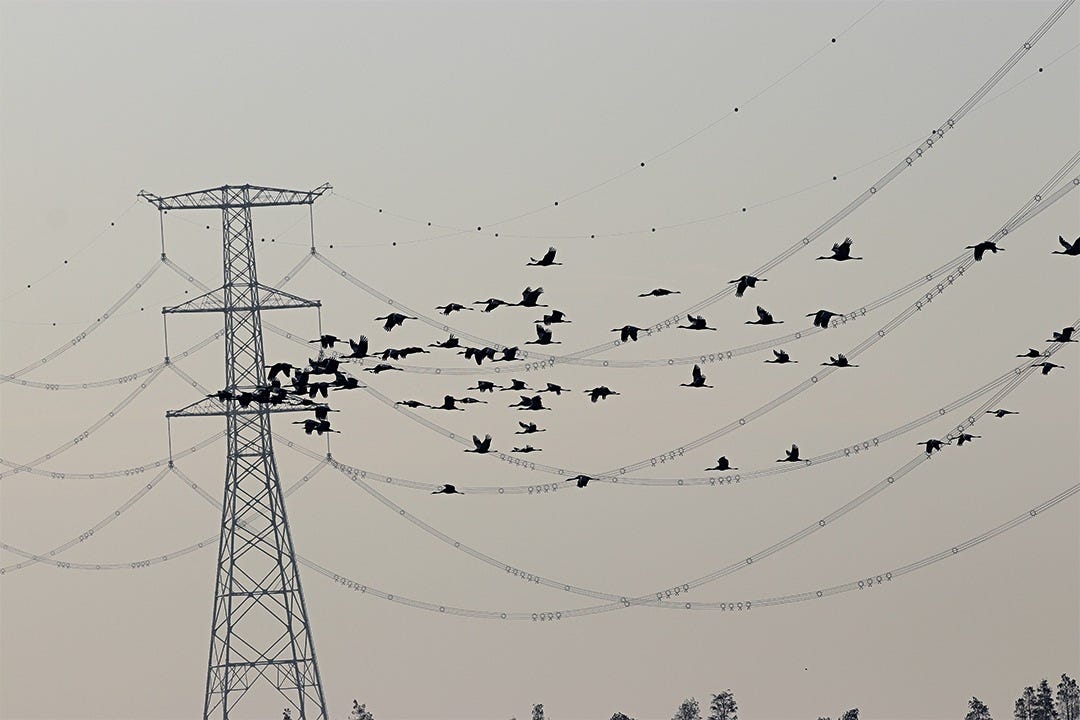In Depth: Power Lines Push Endangered Birds to the Edge
‘Critically endangered’ Siberian cranes are facing an existential threat from a recently constructed ultra-high-voltage transmission line bordering China’s largest freshwater lake
A flock of grey cranes flies over the ultra-high voltage power lines near Poyang Lake in East China’s Jiangxi province on Nov. 16. Photo: Provided by the interviewee
On the morning of Feb. 1, 2024, Zhou Haixiang was conducting a food survey for Siberian cranes in a harvested rice paddy at Chengxin Farm, near Poyang Lake, Jiangxi province, when he spotted a white mass in the distance. As he walked closer through the waterlogged field, he discovered the lifeless body of a Siberian crane.
Dozens of meters away, Zhou — a retired professor from Shenyang Ligong University and a member of the Chinese National Committee for UNESCO’s Man and the Biosphere Programme — found the bird’s severed wing, its bone exposed.
Zhou, also a wildlife photographer, has spent nearly 20 years tracking Siberian cranes, which is a Class I protected species in China, the highest level of protection under the country’s wildlife laws. It is also the most endangered of the world’s 15 crane species, listed as “critically endangered,” by the International Union for Conservation of Nature, meaning it faces an extremely high risk of extinction in the wild.
The global population of Siberian cranes numbers just over 6,000, according to recent data from the International Crane Foundation. And Poyang Lake plays a vital role in the survival of the species. According to Jiangxi’s forestry authorities, about 98% of the world’s Siberian crane population migrated to the lake to overwinter in 2019. That same year, the province designated the crane as its official bird.
Keep reading with a 7-day free trial
Subscribe to Caixin Global China Watch to keep reading this post and get 7 days of free access to the full post archives.




